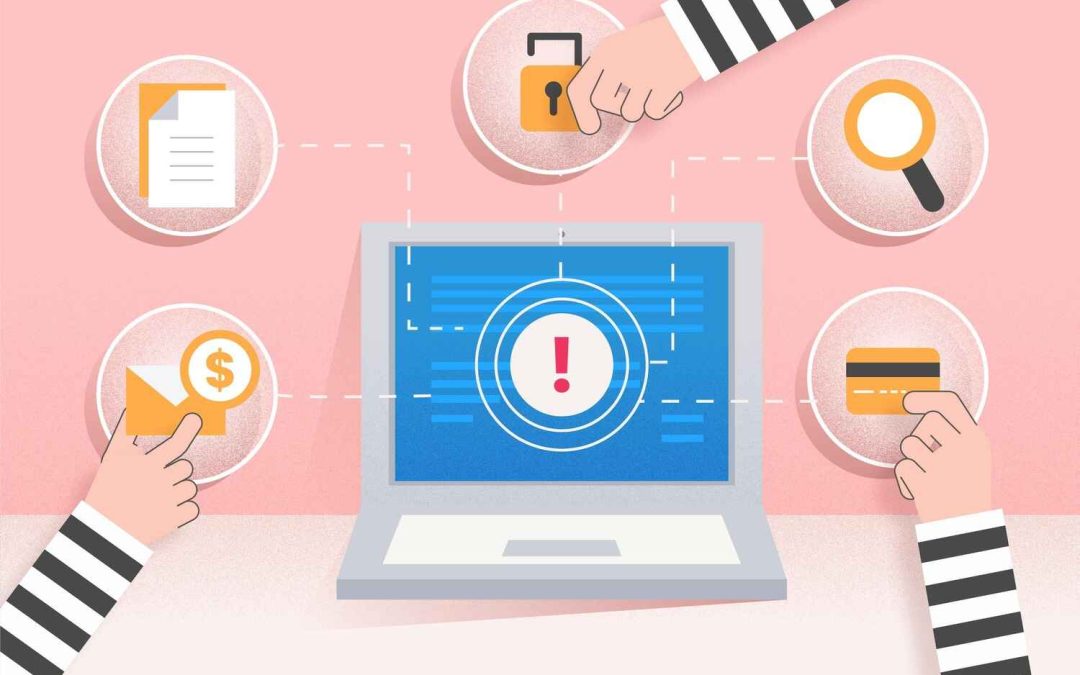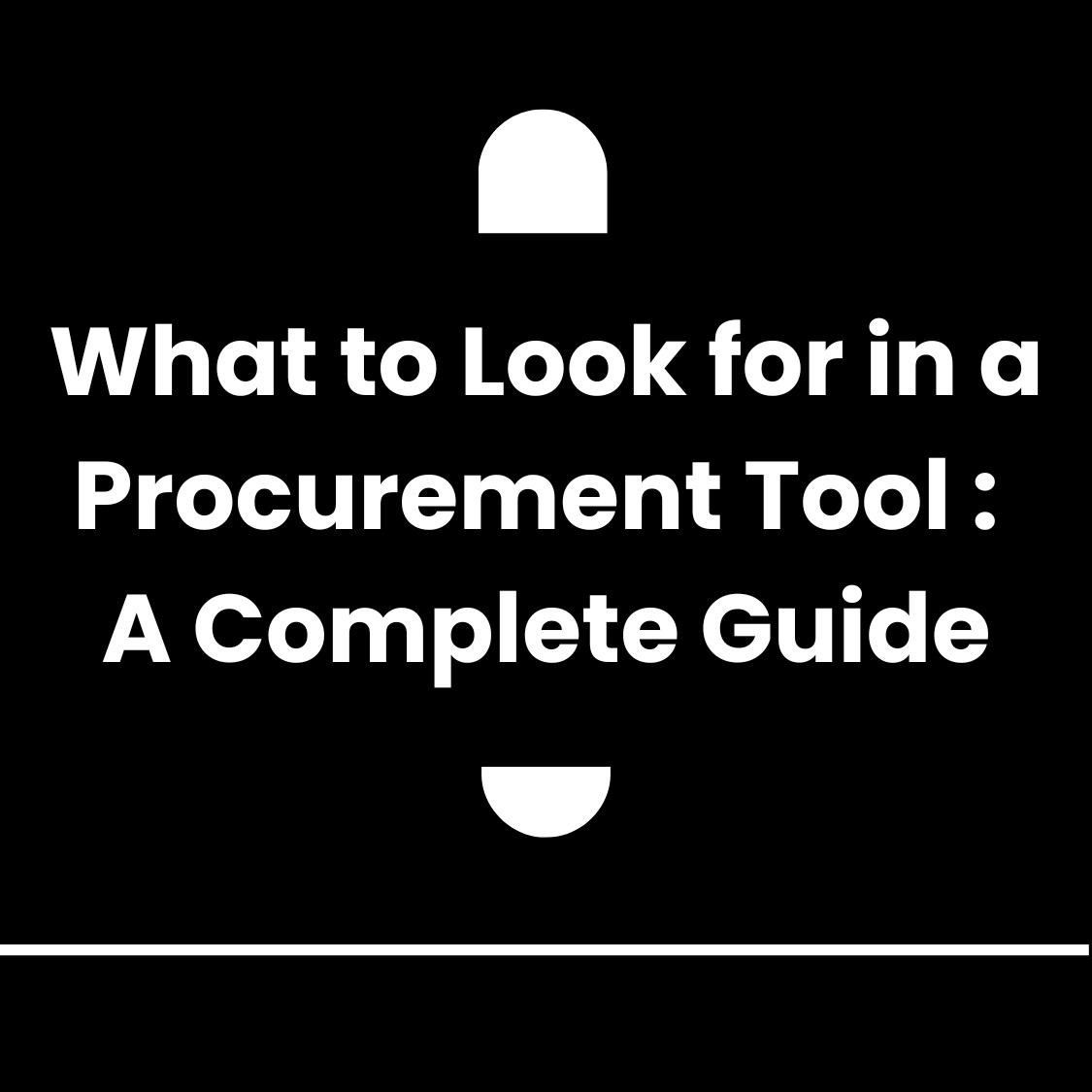Fraud in procurement is still a big problem for businesses all around the world. People that use the procurement process to achieve what they want could lose a lot of money, damage their reputation, or even get in trouble with the law. Stopping fraud in procurement is very important to make sure the process is fair and works. This article talks about a multitude of ways that businesses can lower the risk of procurement fraud and promote openness and accountability by implementing techniques and best practices that have worked in the past.
How to Learn About Fraud When Buying
When a person or business does something dishonest or modifies the way they buy things to help themselves or their company, this is termed procurement fraud. At any point in the buying process, including when you pick a supplier, sign a contract, deliver a product, or pay for it, you could be the victim of fraud. You need to know about all the different kinds of procurement fraud in order to find the best ways to stop it.
If you buy a lot of different goods, you can get ripped off.
Bid Rigging: This is when vendors and procurement officers change the rules for how bids are made. This way, a certain company gets a contract that isn’t fair, and the prices are usually too high.
Kickbacks: In this case, providers give workers or buyers money or gifts in order to get them to sign contracts. Kickbacks could make it tougher to choose a provider and make the buying process less fair.
Fake invoicing is when you send bills for things that were never delivered. People that do this might keep money for things that aren’t real, including bogus goods or services.
When businesses ask for more money than the things they are selling are worth, they are overcharging. People who are in charge of buying stuff usually know about this or are doing it. They lose money because they have to pay more to get what they desire.
Set clear regulations and standards so that people know how to buy things.
One of the easiest methods to avoid being taken advantage of when you acquire something is to make sure that your rules and processes are clear and complete. Because of these regulations, people can’t pick what to buy based on what they want. This makes things clearer and more honest.
Important Parts of a Procurement Policy
Make sure the rules for picking suppliers are clear and fair. For example, you may look at their prices, credentials, and previous work.
How to check and approve purchases: Write down the processes you need to follow to check and approve transactions. There should be more than one level of evaluation so that no one may make a choice without asking.
Employees should tell their bosses about any potential conflicts of interest that could affect their choices regarding what to buy. For example, if they know the person who gave them the information, they should tell you.
Keep track of all your purchases, such as contracts, receipts, and payment authorizations, and make sure they are in the right order. This makes sure that everyone knows what’s going on and can be held responsible.
Check on things and rate them on a regular basis.
When individuals buy things, regular audits are very important for finding and stopping fraud. By watching how individuals buy items, businesses can find problems and even fraud issues early on. This gives them time to fix them before they get worse.
There are audits that happen both inside and outside of the company.
Internal Audits: The company’s own internal audit team undertakes these audits to make sure that the company meets its own rules and standards when it acquires products.
People that don’t work for the company do the outside audits. They can talk about items that employees could notice and be honest about how the buying process works.
Audits should check both the company’s records and how it buys things to make sure that everything is done legally and in line with the company’s guidelines.
Make a rule for persons who tell on others for doing wrong things.
You need a way for people who report fraud to stop it from getting worse. This policy protects workers, suppliers, and anybody else who reports bad behavior.
How a Whistleblower Policy Works
Reporting Channels: Offer clients a number of confidential means to report fraud, such as hotlines, emails, or online tools, so they don’t have to give their names.
People who report bad behavior shouldn’t be afraid of going in trouble, including losing their job or being demoted.
Training and Teaching: Teach your employees how to spot bad behavior and explain to them why it’s important to report fraud. If employees know of fraud, they are more likely to tell someone about it.
Use technology to keep track of what customers buy.
Using technology to make it easier to discover and stop fraud when you buy products is really important. New technologies like blockchain, procurement management software, and data analytics will make businesses more honest and less likely to be cheated.
Software that lets you keep track of what you’ve bought
Modern procurement management software lets businesses acquire things, keep track of transactions, and check on suppliers in real time. This program helps users obey the rules for buying products and makes it less likely that they will cheat.
Things that Help You Understand Data
Things that make data clearer If you see any unusual patterns or changes in your procurement data, these could be signs of fraud. You might be able to find stores that don’t do business right, prices that are too expensive, or people who buy products in ways that don’t make sense if you follow these tips.
How Blockchain Works and What It Is
You can’t change the records of all the things you’ve bought that are preserved on the blockchain. Some of them don’t stay in one place. This technology makes sure that every transaction is clear and can’t be changed. This is a great way to keep individuals from cheating.
Show those who buy things how to prevent getting scammed.
One of the best ways to stop procurement fraud is to teach individuals. When procurement experts know what to look for, they can discover problems and make smarter choices.
Key Elements of Learning
Teaching workers how to spot signs of fraud, like invoices that don’t match, ties with suppliers that aren’t allowed, or pricing that are too high.
When your staff buy things, tell them to be honest and fair. This will help build a culture of doing the right thing.
Tell your employees what will happen to them if they break the law and don’t do anything about it. This might make people less likely to do something against the law.
Make sure you have solid relationships with the folks you buy from.
Getting to know your suppliers well is another important way to stop procurement fraud. If you treat your suppliers well and value them, they are less likely to cheat.
How to Get Your Suppliers to Trust You
Everyone should know and agree to all the terms of the deal. This makes it clear what each side should expect, which decreases the chance of fraud or disagreement.
Always talk to your suppliers and fix problems as soon as they crop up to keep things honest and open.
While you’re shopping, make sure the people you’re buying from follow the moral standards you set for them.
Check the clearances and payments often.
One of the most common occasions for fraud to arise in buying things is when payments are being made. Businesses need to have rigorous rules regarding how to accept payments so that there are fewer chances of false claims and payments that aren’t allowed.
Splitting Up Tasks
One of the best ways to stop fraud is to divide up tasks. It is up to people to make sure that payments are made, tracked, and processed. Someone is less likely to cheat because no one person is in charge of the whole payment procedure.
Looking at the bill
Before paying, businesses should make sure that the goods or services were provided as promised. This could mean putting receipts and orders for delivery or purchase next to each other.
Restrictions on Payments
You put a limit on how much employees can pay so that no one individual can make a big payment without your permission. This makes it even harder for people to launch illegal enterprises.
Plan how you will talk to vendors.
A Vendor Management System (VMS) helps businesses keep track of their suppliers and make sure they perform what they stated they would do in their contracts. A company can maintain track of its suppliers and decrease the risk of fraud by having a single database of all the vendors it can work with.
What a Vendor Management System is capable of
Set up a process for onboarding suppliers to make sure that only approved vendors may bid on contracts.
Monitoring Performance: Watch what suppliers are doing to make sure they are following the rules and policies of the company.
Check to see that the suppliers are obeying all the rules and laws that are in their contracts. You should write down the changes so you can look at them again later.
Get people to tell the truth.
Making honesty a part of the company’s culture is one of the best methods to get customers to stop lying when they buy things. Employees need to know how important it is to obey the rules and do the right thing.
How to Make People Tell the Truth
Being honest and making it obvious that cheating is wrong are two ways to be a successful leader.
Responsibility: Make sure that people are responsible for what they do and provide them rewards when they do the right thing. This will convey that the company is serious about being truthful.
Set up regular training sessions to teach your personnel about how to be honest, how to act professionally when they buy things, and how vital it is to do so.
Conclusion
To stop fraud in procurement, you need a variety of things, such as clear rules, regular audits, staff training, and the most up-to-date technology. Companies may be able to make their purchase processes more honest and open by following these best practices. This lowers the risk of fraud and guarantees that buying things will work out in the long run. Stopping fraud in procurement isn’t just about keeping money safe; it’s also about making a business more honest, reliable, and responsible. Companies can protect their money, their reputation, and the way they do business every day by putting these things first.






